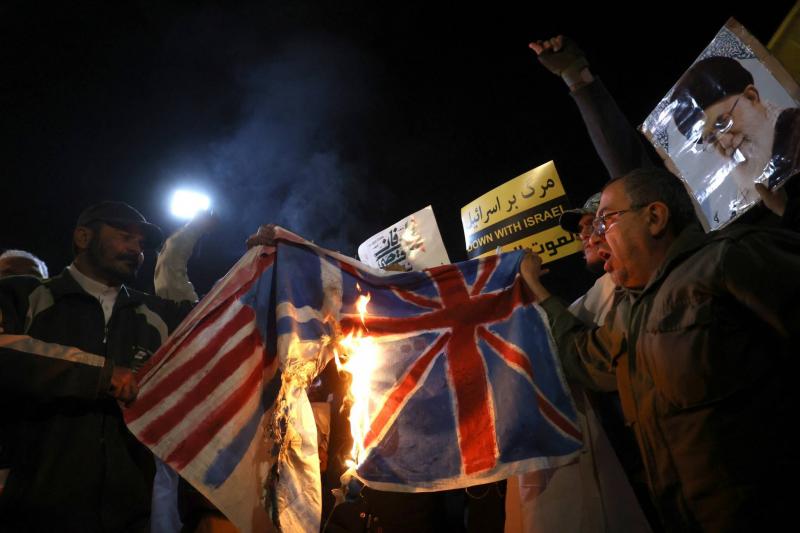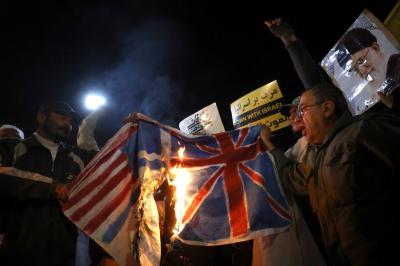Some members of the U.S. Congress have accused President Joe Biden of "violating the Constitution" after he allowed airstrikes in Yemen early Friday morning. However, experts state that certain provisions of the U.S. Constitution grant the White House the authority to conduct limited military actions outside the country. The Houthis threatened a "strong and effective response" following another U.S. strike in Yemen last night, which heightened tensions as Washington vowed to protect maritime traffic from attacks by the Iran-aligned group.
Michael O'Hanlon, director of research at the Brookings Institution's foreign policy program, mentioned that "there is actually no strong argument against Biden taking such action."
**What does the Constitution say?**
Several progressive Democrats criticizing Biden pointed out that the first article of the U.S. Constitution requires permission from Congress, not the President, to declare war, which is one of the "checks and balances" characteristic of the U.S. political system. However, the second article states that the President is the Commander-in-Chief of the armed forces and grants him the authority to use military force without Congressional permission for defensive purposes. Proponents of Biden's actions argue that these defensive purposes include responding to attacks on American bases in Iraq and Syria, as well as commercial vessels in the Red Sea.
**Did Biden violate the War Powers Act?**
In addition to constitutional provisions, the War Powers Resolution governs the use of military force. Congress enacted this resolution in 1973 as a means to monitor presidential authority following the Vietnam War. This resolution stipulates that military actions without a declaration of war or specific legal authority must end within 60 days. It also requires the President to report to Congress within 48 hours of an attack about the circumstances necessitating the action, the authority under which it was taken, the expected scope of combat activities, and their duration.
**What happens now?**
Experts in legal and security policy indicated that the long-term response will depend on developments on the ground. The likelihood of consequences will decrease if the conflict with the Houthis does not escalate and if the U.S. administration keeps Congress informed of developments. Brian Finucane, a former State Department lawyer and senior advisor at the U.S. Program for the International Crisis Group, stated, "I think it's too early to tell how Congress will oppose this." He added, "I believe Congress's reaction may change over time, especially if the Houthis conduct more attacks on shipping in the Red Sea and carry out additional strikes in Yemen." Experts also noted that Congress could pass legislation to rein in the President if it wishes to assert a greater say due to the ambiguity surrounding current laws.
**What are previous decisions?**
Congress passed a resolution to curb presidential war powers in 2020 after former President Donald Trump ordered a strike that killed Qassem Soleimani, the former head of the Quds Force of the Iranian Revolutionary Guard, at Baghdad airport without notifying Congress. Trump vetoed the resolution, and the action did not receive enough support from Republican party members to override the veto. In 2011, former President Barack Obama allowed airstrikes in Libya, ruled at the time by Muammar Gaddafi, without congressional approval. Obama later described this decision as the worst mistake of his presidency. The strikes helped oust Gaddafi but left Libya in a state of instability.




